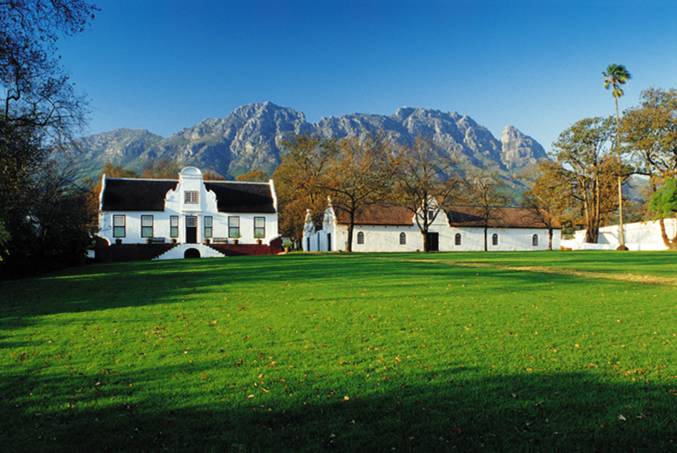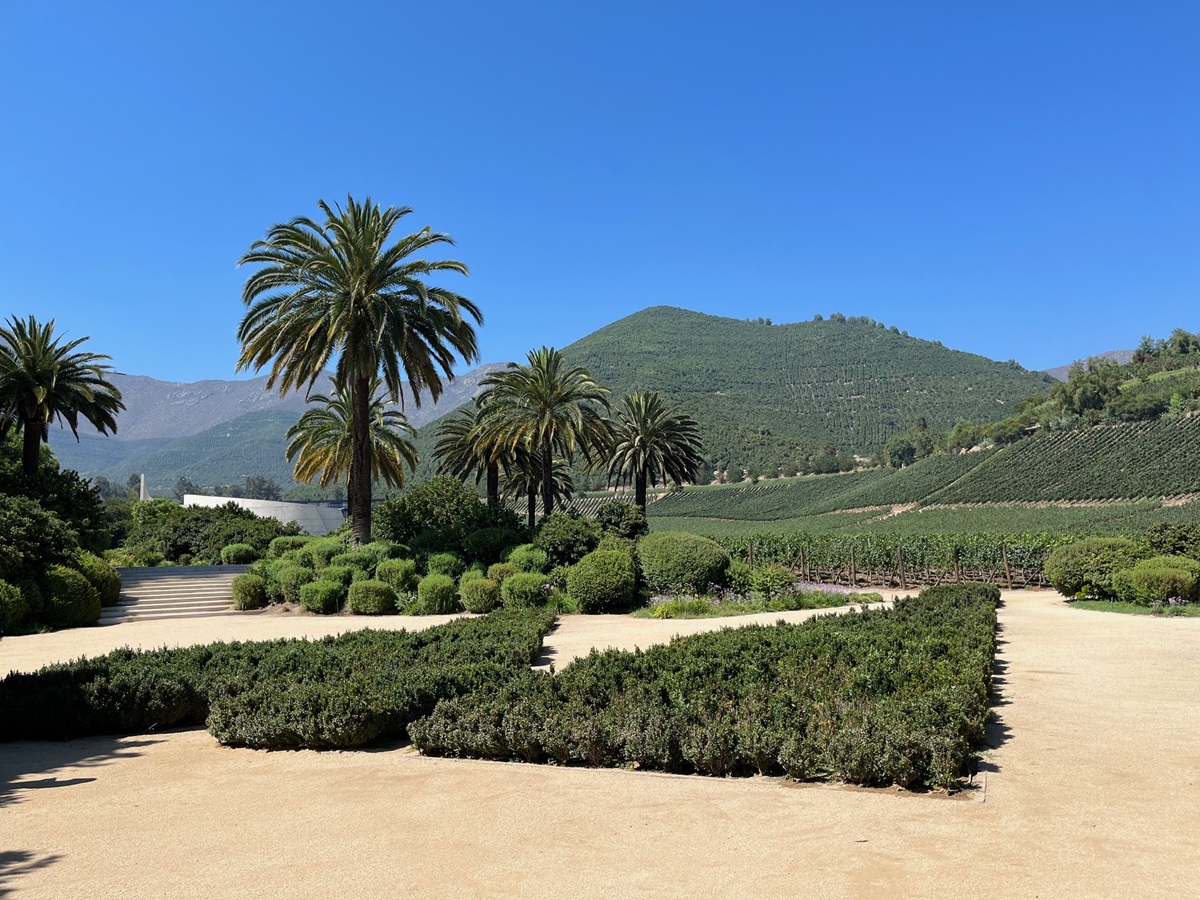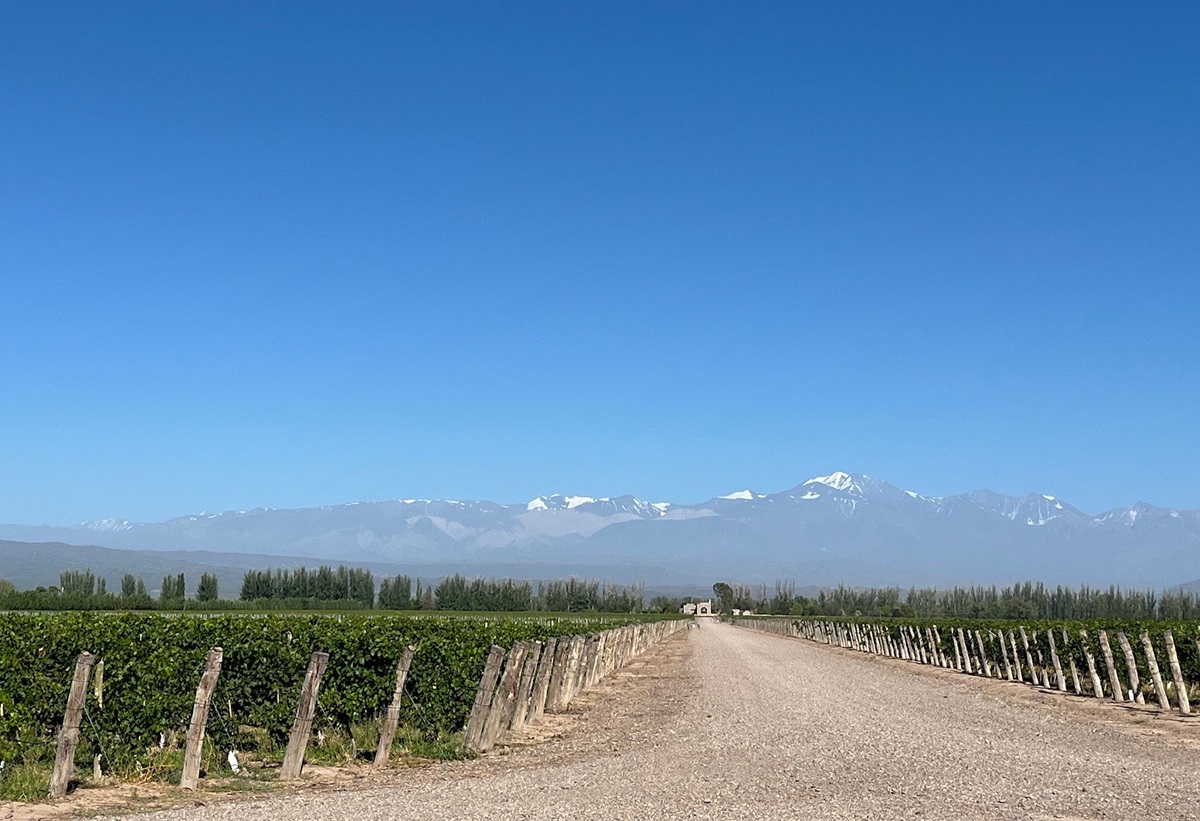MESSAGE IN A BIODYNAMIC BOTTLE
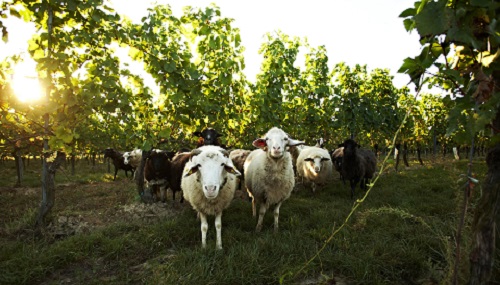
By Rose Murray Brown MW
When the biodynamic winemaking group respekt-BIODYN began in 2007 in Austria spearheaded by winemakers Fred Loimer and Bernhard Ott, the international Demeter organisation saw them as a threat.
Now the two organisations have realised that a shared experience is very important, as they both work to a common aim of spreading the biodynamic message.
To highlight their consensual relationship, respekt-BIODYN and Demeter-Austria joined forces to host a fascinating tasting of 12 growers from across both organisations in Austria and Germany with biodynamic consultant Monty Waldin.
“It is important to learn together and work together”, says Michael Goess-Enzenberg, chairman of respekt-BIODYN, owner of Manincor winery in Sudtirol, Northern Italy.
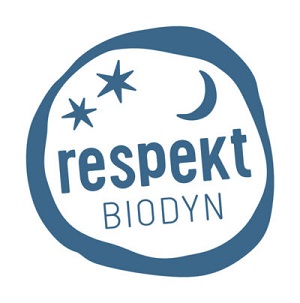
From an initial 12 founding members in Austria in 2007, by 2015 respekt-BIODYN had attracted four high profile VDP estates from Germany. Today it boasts 25 vignerons across Austria, Germany, Italy and Hungary covering 850 hectares in total. The association is currently headquartered at Fritz Wieninger’s winery in Vienna – so the common language is German.
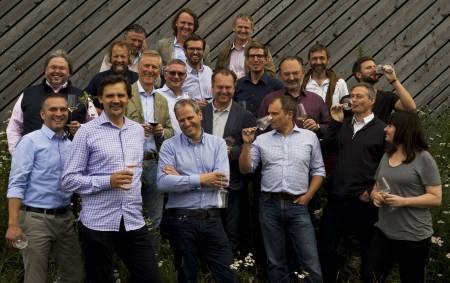
Respekt’s top priority is striving for the highest possible quality in wine – and biodynamics is the way there. They see themselves more as a 'community' (pictured above).
According to Loimer: “we focus on the practice of farming, the people and wine quality, rather than the cosmic side of biodynamics”. By running regular courses and seminars on biodiversity, plant care, composting, biodynamic preparations for members and those interested in joining it is the sharing of ideas and experiences that has helped their members thrive.

In a similar way Demeter (founded in 1928 in Germany) offers biodynamic certification and courses, but is a worldwide organisation – and did not initially include wine in its early years. Demeter is far larger than respekt, covering over 50 countries with 4,500 members worldwide spread across the whole sphere of biodynamic farming. In Austria alone, Demeter have 70 winemakers’ certified estates (but this is just part of their 250 biodynamic-certified farms across Austria).
“Both associations have a key theme. Learning how biodynamic vineyards can build strength creating their own soil fertility through an original form of circular economics. Biodynamic viniculture is proactive in the social, economic and ecological spheres all of which are intimately linked”, says Sylvia Petz of respekt.
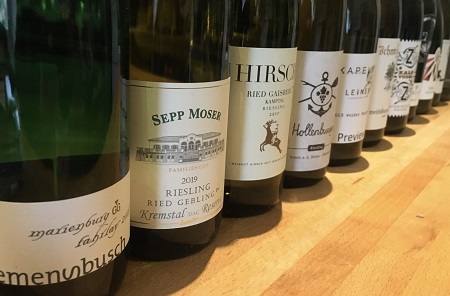
Each grower answered questions about their biodynamic wine experience and reason for conversion – highlighting their own style with a chosen wine:
WHITE WINES
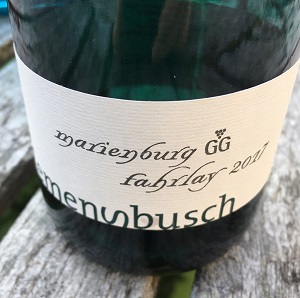 Mosel, Germany: MARIENBURG FAHRLAY GG VDP GROSSE LAGE 2017 Weingut Clemens Busch (respekt) ***STAR BUY***
Mosel, Germany: MARIENBURG FAHRLAY GG VDP GROSSE LAGE 2017 Weingut Clemens Busch (respekt) ***STAR BUY***
One of Mosel’s organic wine pioneers based in Punderich in the midpoint of the Mosel river. Busch converted to organic in 1984, before learning about biodynamics. He believes that biodynamics “opens new dimensions to working with nature and gives his wines energy and tension”, testament to the many years of biodynamic viticulture on these steep slopes. Farhrlay is a terraced south-facing vineyard with Devonian blue slate – my highest scoring wine of the tasting with its rich intense honeyed floral bouquet, intense spicy palate, rich textural palate with distinct saltiness and high minerality – a wine that Busch reckons could last 20 years. Superb.
Kremstal, Austria: RIESLING RIED GEBLING 2019 Weingut Sepp Moser (Demeter)
“At the end of the 1990’s, it was an absolute gut decision to convert to biodynamic farming without knowing much about it. Today we wouldn’t want to work any differently – and it is a great to have so many biodynamic families willing to share information”, says 16th generation winemaker Nikolaus Moser. Inspired by a visit to Alsace, he slowly converting in 2000, their wines became Demeter certified from 2009. Making the change was complicated and Moser admits he made a lot of mistakes in the beginning, but is now an avid spokesman for Demeter Austria. Gebling is a historic stie, first recorded in 1284 – in 2019 it produced a clean vibrant vivid bright Riesling with a subtle minerally style.
Kamptal, Austria: RIED ZOBINGER GAISBERG RIESLING 2017 Weingut Hirsch (respekt) ***STAR BUY***
Johannes Hirsch believes that converting to biodynamics has meant he can precisely show the fingerprint of each of his individual vineyard sites. Working on a 500-year-old tenant farm in Kammern in the Kamptal valley, the Hirsch family like to be different. During the red wine boom of the 1990s in Austria, they ripped out their red vines and planted whites – now focusing on Riesling and Gruner Veltliner. Hirsch’s Zobinger Gaisberg Riesling, from the upper part of Gaisberg hill, was one of the best wines in the tasting. His philosophy of ‘the soil makes the wine’ is demonstrated here with gneiss layers creating a beautiful crystalline clariety with a touch of sweetness and long finish with saline hints – he suggests decanting it into a carafe to enhance the aroma.
Kremstal, Austria: HOLLENBURGER RIESLING NV Weingut Hoch (Demeter)
Christoph’s family winemaking history dates back to the mid C17, but he fundamentally changed the Hoch winery’s direction with biodynamic viticulture when he took over. He calls it evolutionary, not revolutionary. “It has taken time to see results”, says Hoch, “with some vineyards showing changes rapidly after 3 years, but others have taken 20 years to show results”. His focus is natural winemaking, with drier wine styles with moderate alcohol (11.5%) and he likes to blend vintages (in this case three vintages). He also grows herbs for his sprays. Slight spritz, precise clean pure citric fruits with a cider-like tone.
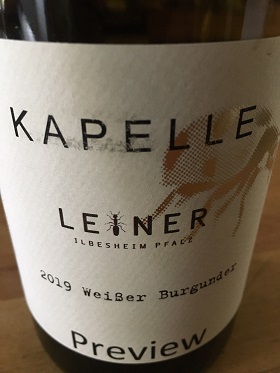 Pfalz, Germany: KAPELLE WEISSBURGUNDER 2019 Weingut Leiner (respekt) ***STAR BUY***
Pfalz, Germany: KAPELLE WEISSBURGUNDER 2019 Weingut Leiner (respekt) ***STAR BUY***
Sven Leiner is a new member of respekt-BIODYN and one of 20 biodynamic growers in the dynamic Pfalz region. His family originally had a mixed farm, focusing primarily on wine since the mid 1970’s – based in Ibesheim at the foot of the Haardt range in southern Palatinate just north of Alsace. When Sven took over in 2000, he moved to organic in 2005 – but had also switched their 17 hectare vineyard to biodynamic as well by 2005, gaining certification by Demeter in 2011. He planted trees, hedges, insect habitats and now even has highland cattle and chickens. Each wine label has an insect – in the case of Weissburgunder it is the important ladybird. This is a great example of Pinot Blanc with rich luscious texture, honeysuckle notes, creamy lees character and long lingering length. No wonder Leiner was shortlisted last year for the best German winemaker by Falstaff magazine.
Neusiedlersee, Austria: WEISSBURGUNDER 2018 Weingut Schmelzer (Demeter)
Schmelzer are one of many growers now using biodynamic methods near Gols near Lake Neusiedl. No sulphur or copper are used – only their own spagyric essences, biodynamic preparations and herbal teas are used. Hand harvested (“using the power of gravity and muscles”), all wild yeast fermented without sulphur and filtering agents. Their Pinot Blanc has a grassy herbal edge – very spicy with tangy juicy palate, very natural feel with its almost cider-like appley tones.
Weinvertel, Austria: GRUNER VELTLINER KALKVOGEL 2019 Weingut Herbert Zillinger (respekt) ***STAR BUY***
Herbert Zillinger is working in one of Austria’s warmest areas in Ebenthal in southern Weinvertel. Zillinger says “it was important to switch to biodynamics to get out of the exploitative system and keep the soil alive – and we found that all our problems disappeared after converting”. The soil in Kalkvogel vineyard is pure limestone which gives such pure fruits and well-defined acidity despite being in a warm dry barren microclimate. He defines his wines as ‘new classics’ and this is indeed very different from other Gruner Veltliners with its intense fruit purity and balance. Spicy celery bouquet, rich intense fruits, long length – made with gentle whole bunch pressing into large oak barrels and spontaneous wild yeast ferment with nothing added, nothing removed.
Weinvertel, Austria: PARCELLAIRE BLANC #1 2019 Weingut Johannes Zillinger (Demeter)
Johannes Zillinger revealed it was a visit to the republic of Georgia that inspired him to move to biodynamics. “I saw so much positive work in Georgia’s small wineries so far away from the techniques we use here – the wines seemed to have a lot more life and vibrancy – and I became influenced by their use of biodynamic viniculture there”, he says. 36 years ago, his father had converted their Austrian farm in Weinvertel to organic, but Zillinger junior believes it was the increasing industrialization of agriculture (even in the organic sector) and ever-changing climate which forced him to move to biodynamic. This is a very precise refreshing blend of 62% Welshriesling and 38% Chardonnay – low alcohol (11.1%) with an inner roundness and lovely texture – which lives up to Zillinger’s desire that his wines taste ‘wild’.
Styrian Volcanoland, Austria: CARA 2018 Weingut Ploder-Roseberg (Demeter)
Manuel Ploder’s family were basically fruit growers in beautiful Styria in southern Austria. “We harvest our produce with joy and extreme satisfaction. It is good to be able to feed ourselves and also grow plants which we can use to make tea sprays for the vines”, says Ploder who focuses on biodiversity and self-sufficiency, part of the biodynamic ideal. With vineyards on the slopes of extinct volcanoes, the wines have a tremendous depth and richness deriving from this terroir. Cara is a blend of PiWi (fungus-resistant) and noble grapes: including 40% Bronner, 30% Souvignier Gris, 15% Gruner Veltliner and 15% Weissburgunder. A rich honeyed palate, good acid fruit balance, distinct vinous natural character to the wine.
Gols/Neusiedlersee, Austria: CHARDONNAY BAMBULE 2018 Weingut Judith Beck (respekt)
Judith Beck is a very convinced biodynamic grower and was one of the first in Gols in Neusiedlersee to convert in 2005. Whilst Beck’s grandparents had a mixed farm, it was her parents who focused more on vine growing at a time when many chemicals were widely used. “Biodynamics discovered us – in fact we nearly lost everything in just one generation; but we could see that something had to be done to revitalise our soils and bring life back to the vineyard, so it became quite obvious something had to change for our vines”, says Beck. “We had been told that cover crops would not work in Burgenland, yet now they are flourishing”. It was for Beck a life-changing experience as it influences all parts of our lives. Whilst she has not gone back to a mixed farm concept, she has a cooperation with nearby cow farmer to supply 500 tonnes of cow manure annually – and now has 40 chickens. Bambule Chardonnay from gravel soils near the lake is an early-picked skin-contact zero sulphur unracked wine – a fresh vibrant Chardonnay (quite cloudy, quite reductive and definitely benefits from decanting) with a pure citric core.
RED WINES
Neusiedlersee-Hugelland, Austria: BLAUFRANKISCH THENAU 2013 Weingut Birgit Braunstein (Demeter)
Birgit Braunstein first discovered biodynamic methods whilst working in Bordeaux at Chateau Canon La Gaffeliere. “I saw so much life and vitality in their wines and I was very impressed by their work – and was convinced that this what I wanted to do in my home town”, says Braunstein. She took over her family’s winery in 1996, one of the most difficult vintages in Austria. “I had not studied winegrowing – so I had to teach myself which was hard. By 2003 the first warm vintage, I saw that I could make red wines, but needed to change to biodynamics”, she says. She learnt what is needed treatment-wise by becoming closer to nature and understanding the vines. Based in Purbach near the Leitha mountains, Thenau is one of her single vineyard sties with 65 year old vines planted by her grandfather with schist and chalky limestone. Wild fermented, three months on skins, pressed to two year old 500 litre Austrian oak; with defined precise structure, well developed tannins, dry with some austerity on the finish, but has matured well.
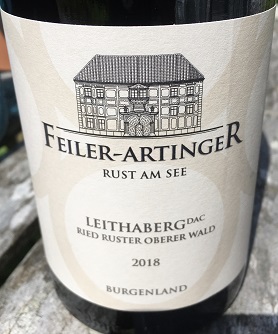 Neusiedlersee-Hugelland, Austria: BLAUFRANKISCH LEITHABERG DAC RIED OBERER WALD 2018 Weingut Feiler-Artinger (respekt) ***STAR BUY***
Neusiedlersee-Hugelland, Austria: BLAUFRANKISCH LEITHABERG DAC RIED OBERER WALD 2018 Weingut Feiler-Artinger (respekt) ***STAR BUY***
A superb example of Blaufrankisch from fossil-limestone soils (Ried Oberer Wald single vineyard) from a great warm vintage – with lush ripeness, broad mouthfeel, juicy, rounded palate and excellent length. Made by the inspiring winemaker Kurt Feiler, the third generation to run the Feiler-Artinger family winery in the beautiful lake-side town of Rust. Feiler calls himself a ‘do-er rather than a sermoniser’. “I tried biodynamics as in the late 1990’s our red wine sugar ripeness came earlier than physiological ripeness, particularly in Rust”, says Feiler. “Once we had converted in 2008 we were able to make more balanced wines with more finesse; the result was thicker skins, opened up bunches and healthier grapes giving me more flexibility and creativity”. Feiler is also unique in that he mows the green ground cover in the vineyards in winter using cows – and has planted a thousand peach trees around his vineyards to attract animals. A convinced biodynamic grower, Feiler believes it has really enhanced the longevity in his wines.
Join Rose’s virtual wine tasting : Discover Moldova with guest host Dr Caroline Gilby MW on Friday 11 June 6.30pm www.rosemurraybrown.com
wine tastings
The perfect gift for the wine enthusiast in the family. Rose does In-person tastings too.
cellar advice
Rose does cellar valuations for private clients, valuations for insurers & bespoke portfolio management.
Related stories
March 31, 2024
By Rose Murray Brown MW Published in The Scotsman 30 March 2024 On 2 February 1659, the first wine made from grapes grown in South Africa was crafted by the Governor of the Cape, Jan van Riebeeck. He had planted vines four years earlier in the Company’s Garden near Cape Town from cuttings imported from France. Van Riebeeck’s first
March 24, 2024
By Rose Murray Brown MW Published in The Scotsman 16 March 2024 Heatwaves and bushfires were very much on the agenda when I visited Chile last month as winemakers prepared for their 2024 harvest in blistering heat and drought, with a plume of smoke from the devastating fires lingering over coastal hills. Heat and drought are the greatest challenges
March 23, 2024
By Rose Murray Brown MW Published in The Scotsman 9 March 2024 I have two glasses of Malbec in my hands from the same high-altitude vineyard in Uco valley in Argentina. I am in the Catena Institute of Wine in Mendoza with winemaker Agustin Silva. He has asked me to taste the two wines, both from the 1500m high

